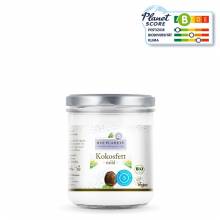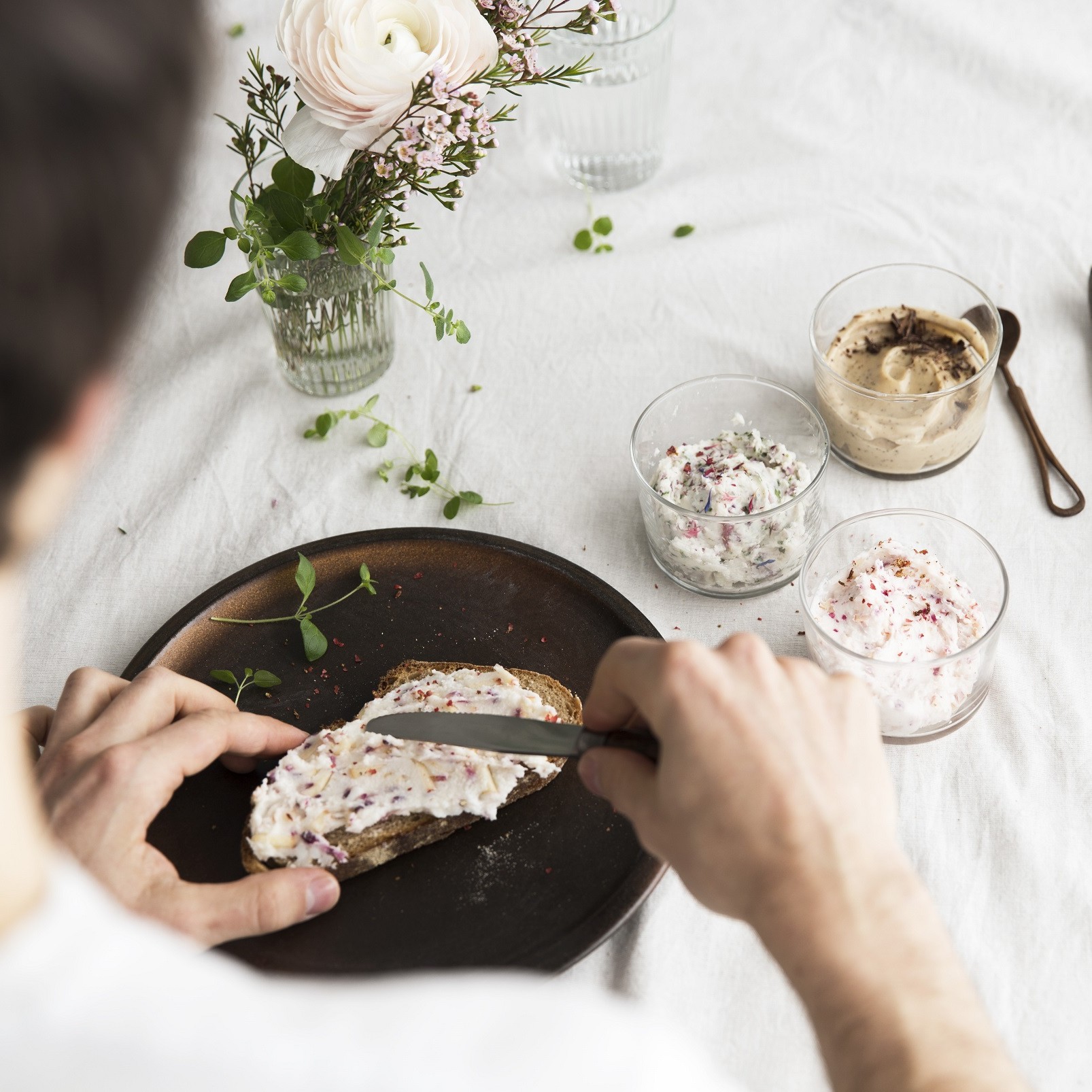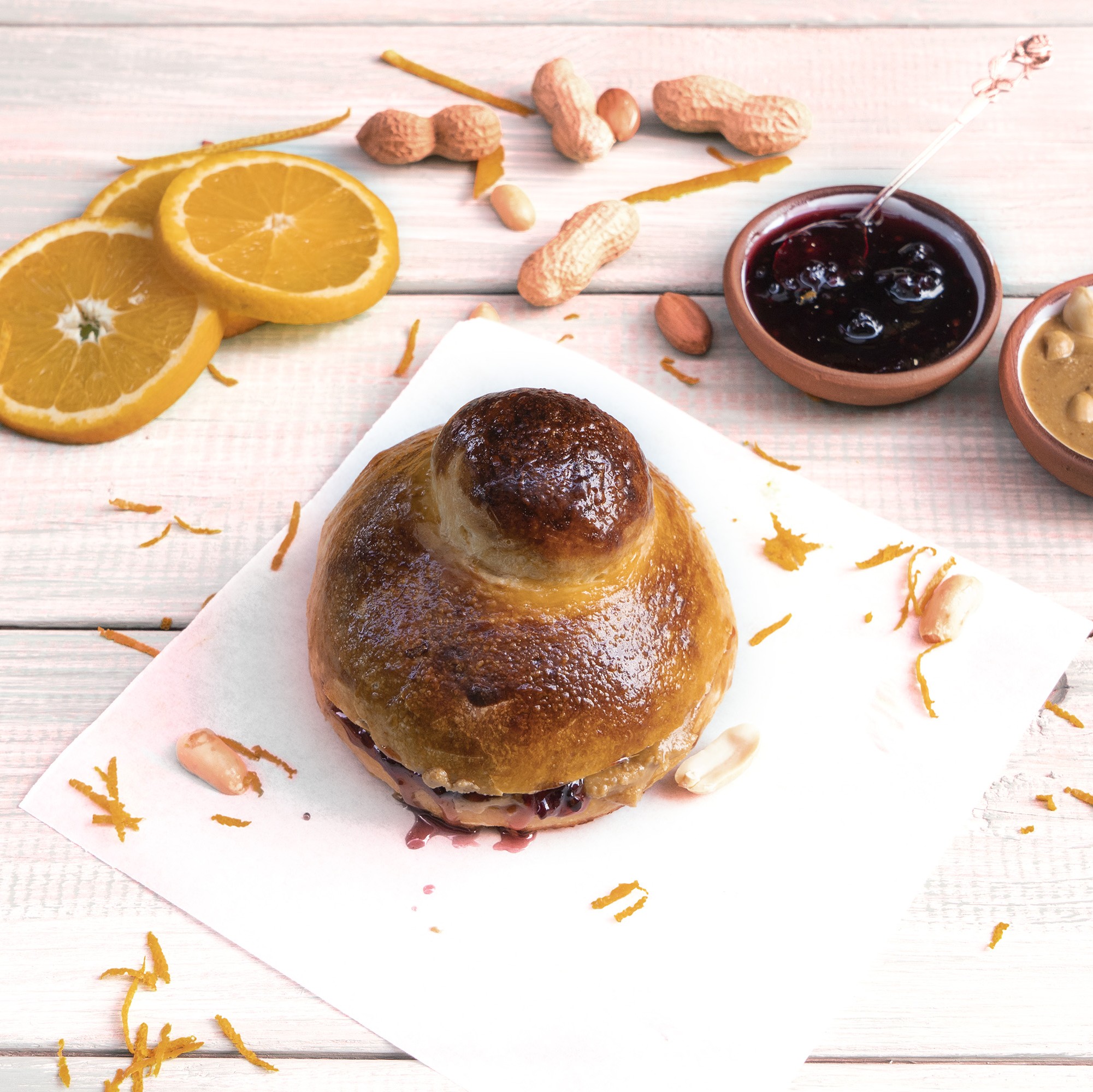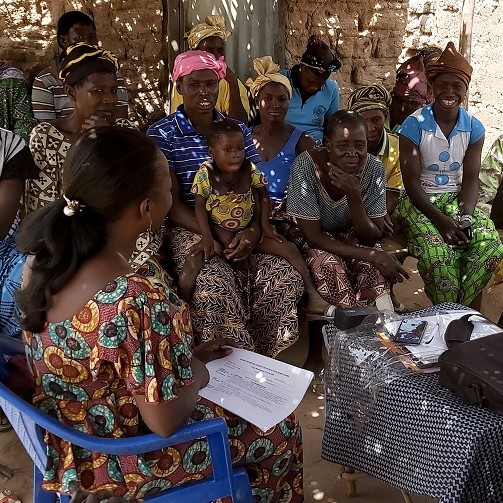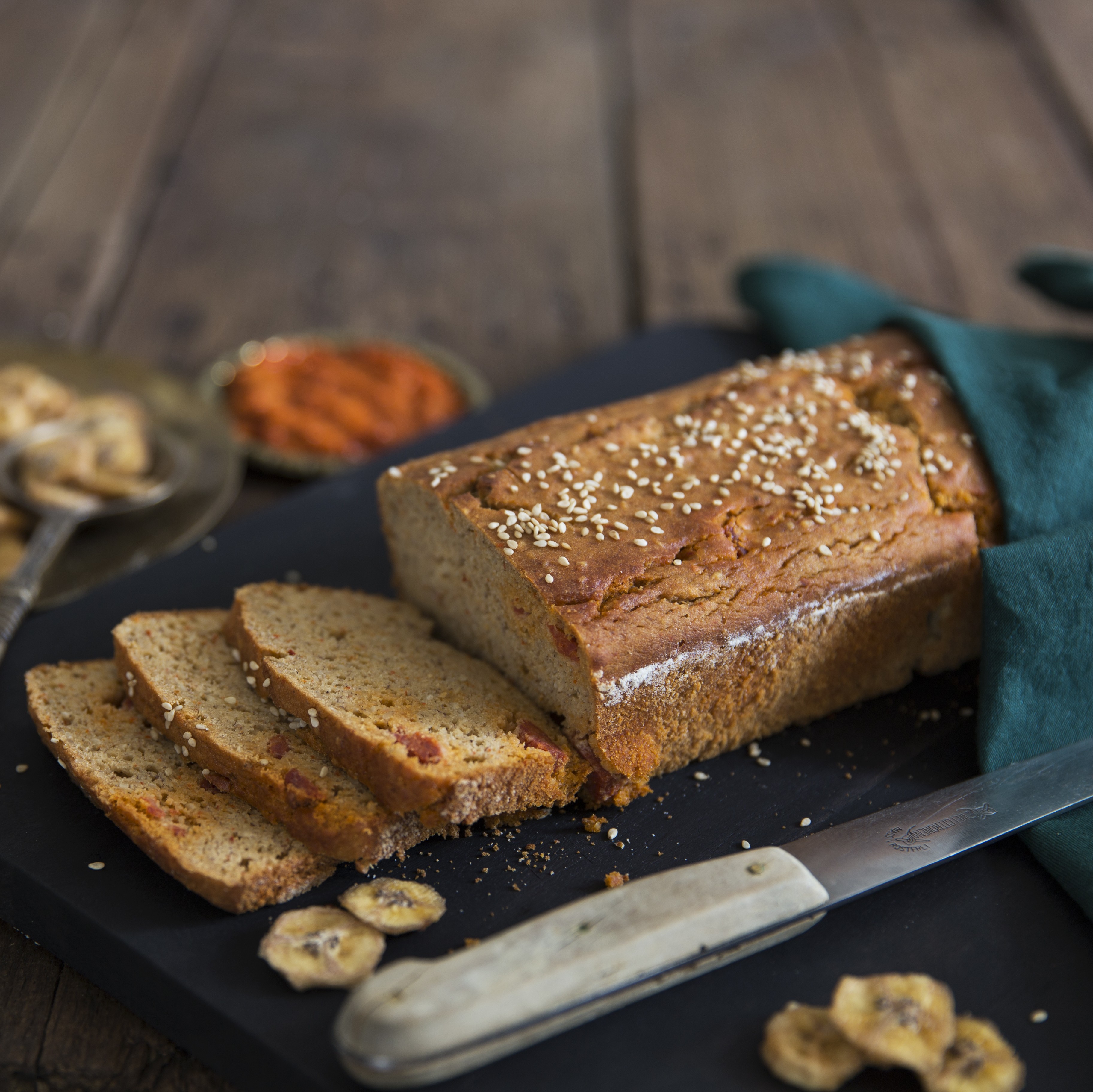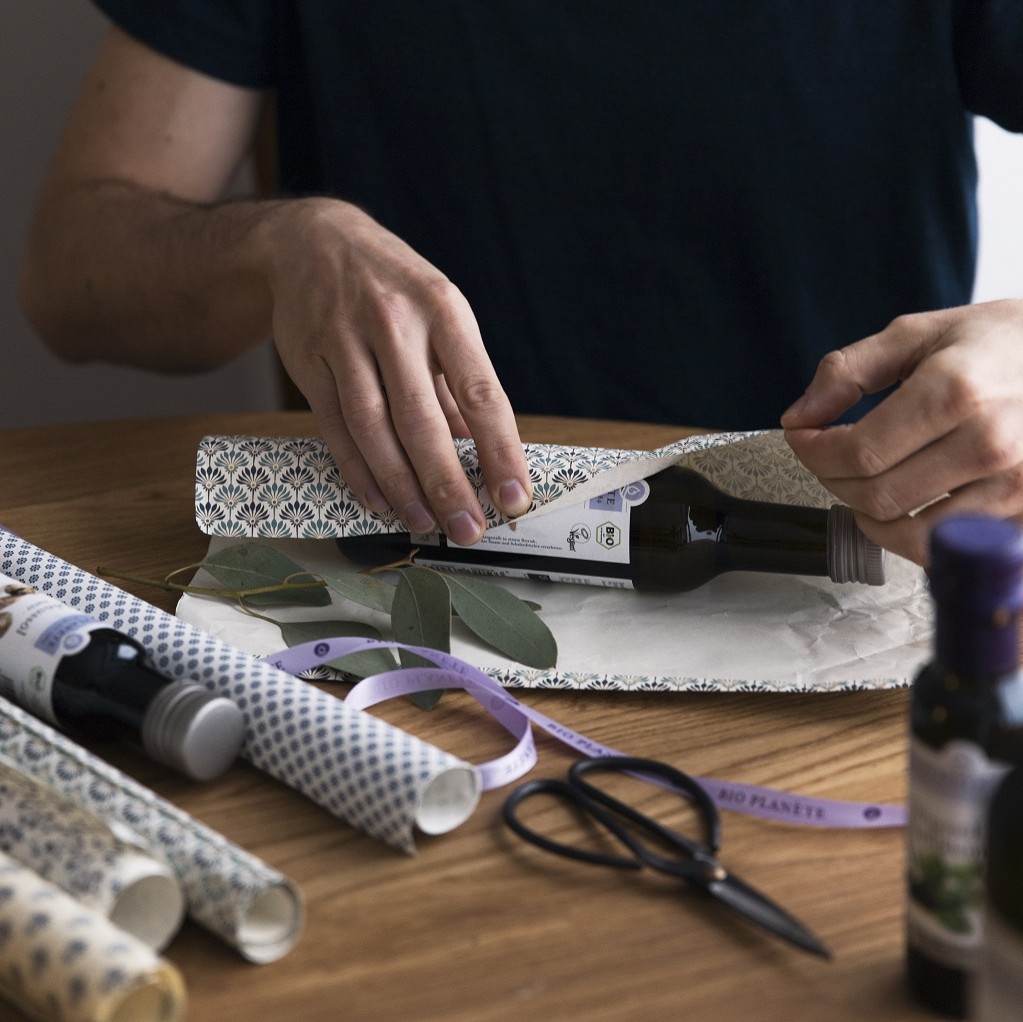
Shea Butter
· Pure · Bake · Roast ·
200 ml
With BIO PLANÈTE Shea Butter, we have brought a taste of Africa to European cuisine. This is because the “gold of African women” is traditionally not only used in cosmetics (skin and hair care) and medicine, but also primarily as a foodstuff.
Wild harvest
Shea nuts that botanically belong under berries. The gnarled shea trees grow up to 20 meters in height and can live for more than 300 years. In spring, the white blossoms exude a scent of honey. Shea trees are considered sacred trees in Africa and they must not be harmed or felled. The fruits for BIO PLANÈTE Shea Butter are mainly collected in Burkina Faso, Ghana and the Ivory Coast – in a wild harvest. Because targeted breeding has not yet been successful, there are no plantations.
Traditional production
At harvest time, generally between June and July, the fruit is collected predominantly by the women of the often rural communities in the so-called Shea Belt which stretches from West Africa to the Upper Nile region. To get to the much sought-after vegetable fat, traditionally the seeds are first separated from the flesh of the fruit, boiled and then dried under the sun of Africa.
They are then crushed into a brownish pulp with a mortar and boiled several times until the shea oil can be separated from the kernels and skimmed off. As it cools, the oil solidifies and an ivory-coloured butter with a nutty scent is produced: the precious Shea Butter. It is estimated that more than 16 million women are employed along the shea supply chain, which is why shea butter is also known as “women’s gold”. Collecting and processing the fruit has always been in women's hands and often forms the basis of life for entire families.
This oil is one of the first food products in Germany and France which has been rated with the Planet Score. For this eco-labelling, additional indicators are used alongside the life cycle assessment to better capture the environmental impact of food production. Read more about the Planet Score.
Ideas for recipes and use of Shea Butter
Shea Butter is spreadable, has a neutral flavour and smell, can be heated to high temperatures and is therefore suitable for baking and frying. Therefore, the locals traditionally use the soft butter as a frying and baking fat. And the cherry on top: BIO PLANÈTE Shea Butter gives baked goods a glorious golden-brown crispiness. Shea Butter also makes for a great vegan sandwich spread and can be used in a similar way to dairy-based butter.
"Zero Waste" tip for the further use of the jars
You can easily reuse our Shea Butter jars. Be it for preserving jam, nicely designed as a tealight or as a storage container for tea, cereals or legumes. Get more suggestions at Upcycling & Creativity.
Since we use oil-soluble glue for the labels, the best way to remove the label from the coconut jars is with oil. Simply coat the label with oil, let it soak in overnight and peel off easily in the morning.
Also discover our Coconut Oil Virgin and the Coconut Oil Neutral.
Product of organic farming
Average nutritional analysis for 100 ml
**% of daily reference intake (adults)
-
Is the fruit of the shea tree nut or berry?
From a botanical point of view, the shea nut is not a nut but a berry. The core is surrounded by a thick fruit skin and contains about 45 % fat.
-
Is the BIO PLANÈTE Shea Butter refined?
Yes, because in BIO PLANÈTE Shea Butter the odours and flavours are removed with steam (deodorisation). This form of physical refining eliminates aggressive, environmentally harmful substances.
-
How can compliance with the standards of the organic seal be guaranteed for wild growing shea trees?
Organic sheafruit collections are only available in certain areas. These areas are clearly marked and are located at a sufficient distance from conventionally cultivated land and may not be used for farming. In this way, pesticides and herbicides used in agriculture are prevented from entering the organic areas. In these areas, everything grows untouched between the trees, which not only leads to a high density of new shoots, but also to other shrubs and plants and a high diversity of insects. Despite the marked areas and the clear demarcation from conventional nuts, the butter produced is regularly checked for harmful substances both by the inspection bodies and by the suppliers. As with all organic products, the legislation for organic farming must be respected, and the product must be pesticide-free.
To prevent the entry of unacceptable substances through contamination of transport and production materials, deposits and packaging, separate shells and bags are provided for organic nuts. These are distributed to the women and used exclusively for the organic raw material, so that a clear distinction is made. There is also a clear spatial demarcation from the conventional nuts when drying the nuts. There is an additional and delimited area for the organic nuts, to which only the responsible women have access and which cannot be entered by animals.
By the way: the maximum harvest yield of shea trees is only reached at the age of 40 years. -
Where is Shea Butter used?
Shea butter is traditionally used not only in cosmetics and medicine, but above all as food. In Europe, the "Gold of Africa" established itself for many years in cosmetics for skin and hair - now, Shea Butter is making its way into the food markets.
BIO PLANÈTE Shea Butter is spreadable, has a neutral taste and is highly heatable. This makes it suitable as a baking or frying fat and as a base for spreads. The vegetable alternative contains about 50 % more unsaturated fatty acids than animal butter. -
Why does Shea Butter crystalize?
Shea Butter has a melting range of 28 to 45 °C, which means it changes from solid to liquid state in this temperature range. However, this does not happen suddenly, but in stages, as the different fatty acids in shea butter become liquid at different temperatures. The result is a partial separation of fatty acids at temperatures above 28 °C. One part becomes liquid, another not (yet). If the ambient temperature subsequently drops back below 28 °C, the separated areas all become solid, resulting in a crinkly consistency. This is particularly common in summer due to temperature fluctuations in this range. This does not affect the quality.
The original, non-crystalized consistency can be restored by heating the Shea Butter to about 45 °C until it is completely liquid. After cooling, it has a uniform consistency again. -
What conditions and standards are behind the organic seal on our oils?
An organic seal is a quality and test seal with which products from organic farming are marked. In 2010, a binding new organic seal was introduced throughout the EU, also known as the EU organic logo, which identifies food from organic farming (a star-shaped leaf on a green background).
This seal replaced the German state organic seal (green hexagon with "BIO" lettering), which had existed since 2001, with the same standards in terms of content. Due to the high degree of popularity of its predecessor, both seals are still often used today.
The use of this certification is strictly regulated by the publisher and is subject to ecological requirements. Compliance with the criteria by producers is ensured by a documentation obligation as well as regular sampling and examination of product samples. Compliance with the regulations is monitored in Europe by the responsible Eco-Control bodies.
Foods labelled with the organic seal must, among other things:
• Not be produced by or with/from genetically modified organisms
• Not to be produced with the use of synthetic pesticides
• Contain no more than 5% conventionally produced components (in exceptional cases, if ingredients are not available in ecological quality, in accordance with Annex VO)
• not contain sweeteners and stabilisers as well as synthetic colourants, preservatives and flavour enhancers
• not result from monotonous crop rotations (two-, three- and four-field farming)
• and much more: more information on the EU Organic Label -
Can I use the oil even after the expiration date?
We can no longer guarantee the oil's perfect quality after its best before date.
In the interest of sustainability, however, we would like to point out the following: vegetable oils do not belong to the group of very sensitive foodstuffs and can usually still be consumed after the best-before date. This is especially true if the bottle is still sealed and it has been stored away from heat sources. Therefore, we recommend using your senses to test the oil before disposing of it. Oil that has been stored for too long can be easily recognized by smell and taste. If it tastes rancid or unusual (off), it should not be consumed. -
How do I remove the labels from the jars and bottles?
Since we use oil-soluble glue for the labels, the best way to remove the label from the coconut jars is with oil. Simply coat the label with oil, let it absorb overnight and peel off easily in the morning. However, if the label is already off and only the glue is on it, this method doesn't work as well. In this context, we have been told of positive experiences with orange oil cleaner, such as from AlmaWin or Sodasan. Another option is a hair dryer - because heat also loosens the label well.
Get more suggestions at Upcycling & Creative.
Shea Butter is the sustainable vegan alternative for baking and frying. Depending on how you use it, it is a great substitute for animal butter, palm oil and cocoa butter and offers other advantages too:
• very spreadable (melting point at about 28°C)
• neutral in taste and highly heatable
• melts wonderfully on the tongue
• 50 % more unsaturated fatty acids than animal butter & coconut oil
• Makes baked goods wonderfully brown
• Store at room temperature
• Conservation of important endangered animal habitats thanks to the harvesting of wild karitè trees
